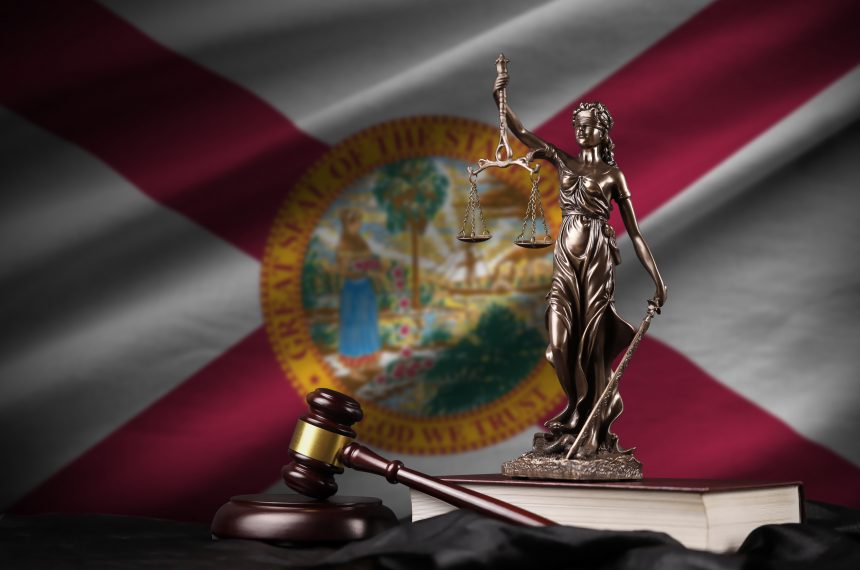Happy To Discuss About Your Requirement? Get a Quote

This article offers insight into Florida’s intricate legal system, emphasizing the importance of grasping its structure and participants for anyone dealing with legal affairs in the state. It explores the system’s foundations, including its three branches of government, the significance of attorneys, and prevalent legal issues.
By understanding these dynamics, individuals can better navigate various legal matters, from civil lawsuits to criminal cases, and receive guidance on areas like real estate or family law within Florida’s legal framework.
The legal system establishes a framework of laws and regulations that govern society, ensuring justice, fairness, and order. It defines jurisdiction, which delineates courts’ authority based on geographical boundaries or subject matter, while statutes, enacted by legislative bodies, provide specific rules and regulations.
Case law and precedents interpret past rulings, guiding future decisions. Legal research examines these laws, cases, and precedents to build persuasive arguments and support legal positions. Legal representation is crucial for upholding the rights of individuals and entities within this structured framework, ensuring fair treatment under the law.
Florida’s legal system is a complex network of laws governing the state, integrating state and federal criminal law and offering a diverse landscape for legal professionals. With a wide range of legal services available, including various court procedures and practices, the legal community in Florida is dedicated to providing accessible and effective representation.
However, the interaction between state and federal laws often presents unique challenges, requiring practitioners to understand how these laws intersect and influence each other to ensure compliance and effective representation. Despite these challenges, legal professionals in Florida are known for their commitment to protecting the rights and interests of clients and providing access to justice for all individuals regardless of background or circumstances.
In Florida’s legal system, the three branches of government—legislative, executive, and judicial—have distinct roles in overseeing civil and criminal procedures, ensuring order, fairness, and justice. The legislative branch creates laws, the executive branch enforces them, and the judicial branch interprets and applies them in legal cases.
The State Supreme Court interprets legal documents and ensures compliance with court rules, maintaining integrity and fairness. District Courts of Appeal oversee appeals, expedite processes, and promote courtroom etiquette. Circuit Courts manage various legal processes like jury selection and mediation, ensuring timely resolutions and upholding legal standards. Together, these institutions contribute to a well-organized and just legal system in Florida.
Attorneys in Florida play a vital role in providing legal services, maintaining courtroom decorum, and delivering competent representation to clients. They navigate the legal landscape to safeguard individuals’ rights and interests.
As advocates, they guide clients through intricate legal procedures and present persuasive arguments in court. Acting as intermediaries, attorneys bridge the gap between the legal system and those seeking justice, ensuring fairness in proceedings. Their expertise spans diverse legal areas, enabling them to offer tailored solutions, from family law to intricate corporate transactions.
In Florida, attorneys specialize in various fields of law, providing expert legal representation to clients. The legal landscape in Florida encompasses a broad range of specialties, from personal injury to real estate, with specialized attorneys catering to diverse legal needs.
Whether navigating complex business transactions or resolving family disputes, attorneys bring their clients a wealth of knowledge and experience. Focused on delivering tailored solutions, Florida attorneys serve as confidants and advocates during legal challenges, ensuring the best possible outcomes for their clients. This commitment reflects the dedication of Florida attorneys to their clients’ success.
The Bar Association in Florida regulates the legal profession, overseeing ethical standards and promoting excellence in legal representation. It sets and upholds ethical standards, ensuring integrity within the legal system and bolstering public trust.
Through monitoring and enforcement efforts, the Association maintains confidence in the profession. Additionally, it provides support and resources to legal professionals, fostering continuous learning and development to deliver high-quality legal services and stay updated on legal developments and best practices.
Navigating the legal process in Florida involves understanding complex procedures like discovery and depositions, which are crucial in civil and criminal proceedings. Discovery facilitates information exchange and evidence clarification, while depositions gather sworn testimonies outside the court to assess witness credibility.
This comprehension ensures fairness. Legal research builds evidence in civil lawsuits, adherence to court procedures ensures smooth progress, and evidence presentation is pivotal for persuasion. Criminal cases involve formal charges filing, defendant response, discovery, trial proceedings, and sentencing. Florida offers alternative dispute resolution like arbitration and mediation to resolve conflicts efficiently outside courts, reducing burdens and promoting cost-effective solutions.
Common legal issues in Florida span real estate, family, and criminal law, reflecting the diverse legal landscape and individuals’ varied legal needs. Real estate law involves navigating complex regulations, property rights, and title disputes, requiring expert legal guidance. Family law concerns such as divorce, child custody, and support are emotionally challenging and legally intricate, necessitating skilled attorneys for fair resolutions.
Criminal law issues, including DUI charges and violent crimes, are prevalent, demanding a thorough understanding of the state’s criminal justice system and potential consequences. In real estate, regulations dictate property transactions, lease agreements, and land-use regulations, ensuring compliance and avoiding disputes. Family law addresses marriage, divorce, custody, support, protecting family rights, and resolving conflicts.
Criminal law encompasses offenses from misdemeanors to felonies, necessitating robust defense strategies to safeguard individual rights and achieve fair outcomes in legal proceedings.
© 2024, Alpha Law Group